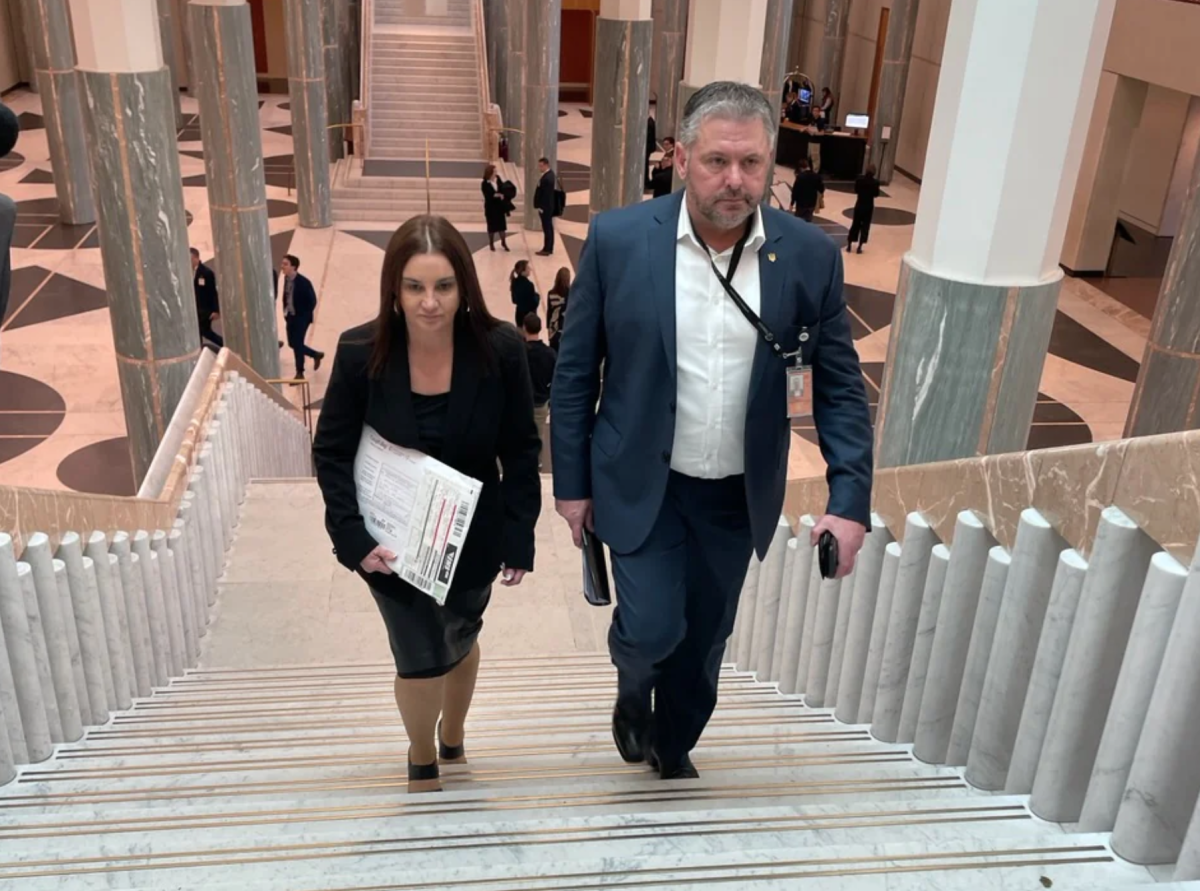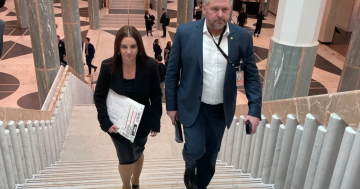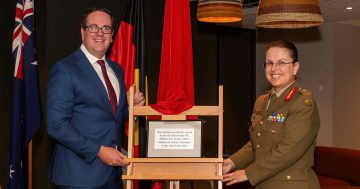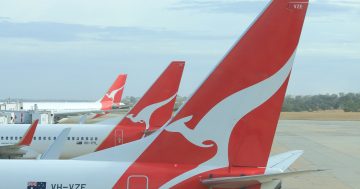Senator Jacqui Lambie and military lawyer Glenn Kolomeitz at Parliament House on Tuesday afternoon. Photo: Jacqui Lambie.
Tasmanian Senator Jacqui Lambie has taken the extraordinary step of unilaterally referring unnamed Australian Defence Force (ADF) commanders to the International Criminal Court in The Hague.
Senator Lambie said she did so because of what she said was an unsatisfactory outcome from the Morrison government’s 2020 Brereton Inquiry into alleged war crimes committed by Australian soldiers in Afghanistan, a cover-up at the highest levels of the ADF, testimony in the civil case brought against media by Ben Roberts-Smith, and what she says is the Albanese government’s failure to act against the allegations since it came to power.
She said she had tried to speak to Defence Minister and Deputy Prime Minister Richard Marles about the issue “for months”.
On Tuesday (20 June), she called on the government to acknowledge and take responsibility for the “shocking lack of accountability” by senior ADF leadership.
“Let’s be quite clear here – the senior commanders have not been examined through the hardcore legal lens they have put the diggers through,” Senator Lambie said.
“They’re hoping that Australians will forget – that when alleged war crimes in Afghanistan were investigated – our senior commanders got a free pass while our diggers were thrown under the bus.
“Like the Chief of the Defence Force and the top brass, the government is, no doubt, hoping this will all go away.
“Well, we won’t forget. I won’t forget.
“So, this morning, we took action. We have filed with the Prosecutor of the International Criminal Court in The Hague an Article 15 communication. This asks him to look at Australia’s higher commanders through the lens of command responsibility.”
Under Article 15, the ICC says that any individual, group, or organisation can send information on alleged or potential ICC crimes to the Office of the Prosecutor (OTP) of the ICC.
“An enormous amount of work has gone into this – I thank them all for their contribution – especially Dr Glenn Kolomeitz, veteran and lawyer,” she added.
“The law of command responsibility is a method of criminal liability where commanders have failed in their duty. The International Criminal Court is a court of last resort. It isn’t an easy task to get them to investigate.”
Senator Lambie didn’t say which commanders had been referred, and it is not known at this stage whether specific names are required for the ICC to commence an investigation. However, one of those referred is likely the current Chief of Defence Force, General Angus Campbell who, as a Major General, was commander of Joint Task Force (JTF) 633 – the ADF’s headquarters of Middle East Area of Operations (MEAO) – in 2011 and 2012.
“When the Chief of Defence was asked in Estimates if his ‘Command Accountability Review’ was an investigation, he admitted that it wasn’t, so I guess it was just another marking your own homework exercise. It seems that those who are most responsible are the least accountable,” Senator Lambie said.
“Evidence from multiple sources independent of the Brereton Inquiry, including witness testimony before a civil defamation trial, said, ‘The leadership knew. This went beyond patrols – this went up the chain’.”
In a doorstop press conference on Tuesday afternoon, Dr Kolomeitz said, “It’s now obviously in the hands of the prosecutor”.
“One of the prosecutor’s policies … is to refer it back to the state party — so in this case back to Australia for consideration. The onus will then be on the Australian Government to give some serious consideration as to why Australia has not investigated the command responsibility aspects of the Afghanistan allegations and what they’re going to do about it.”




















